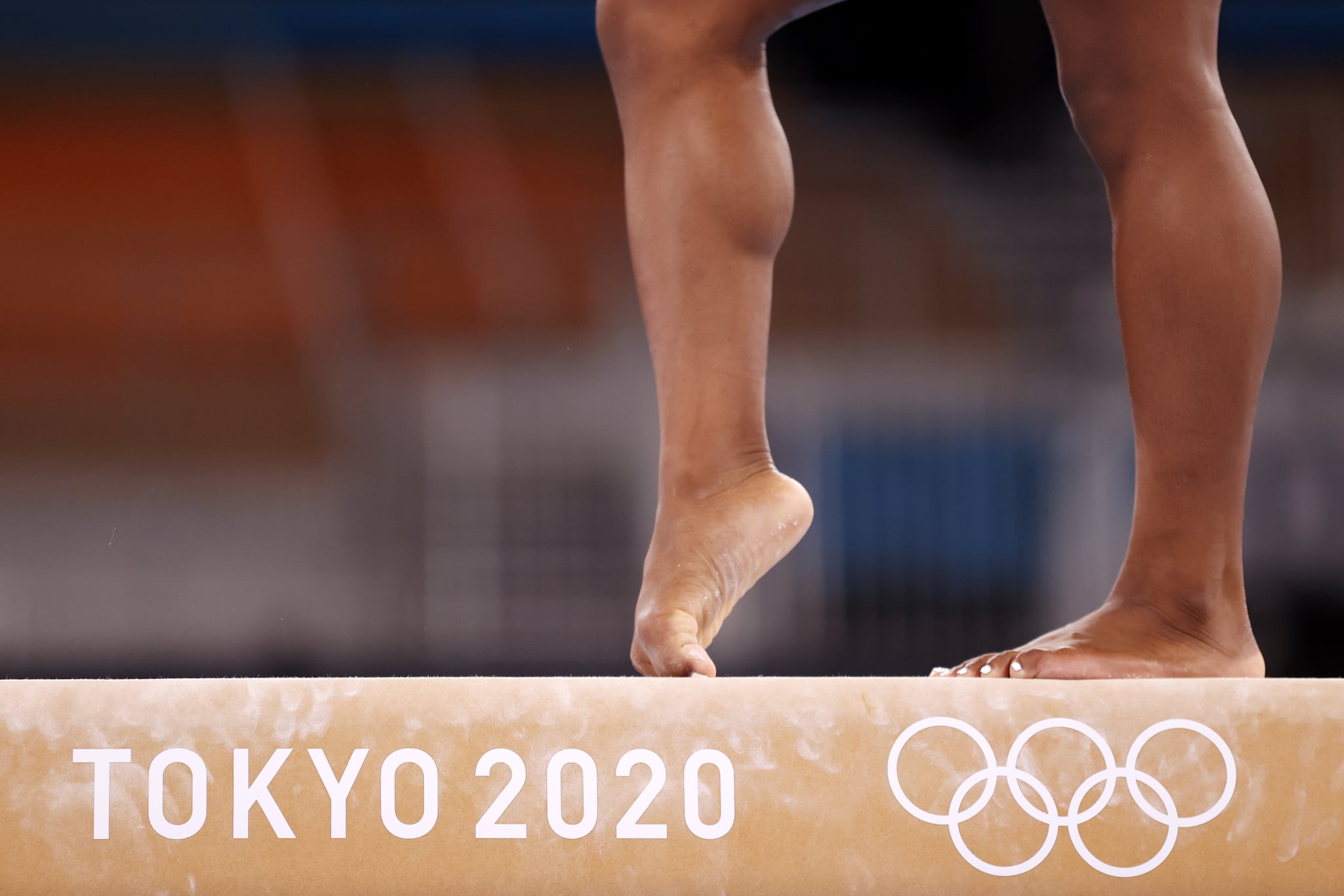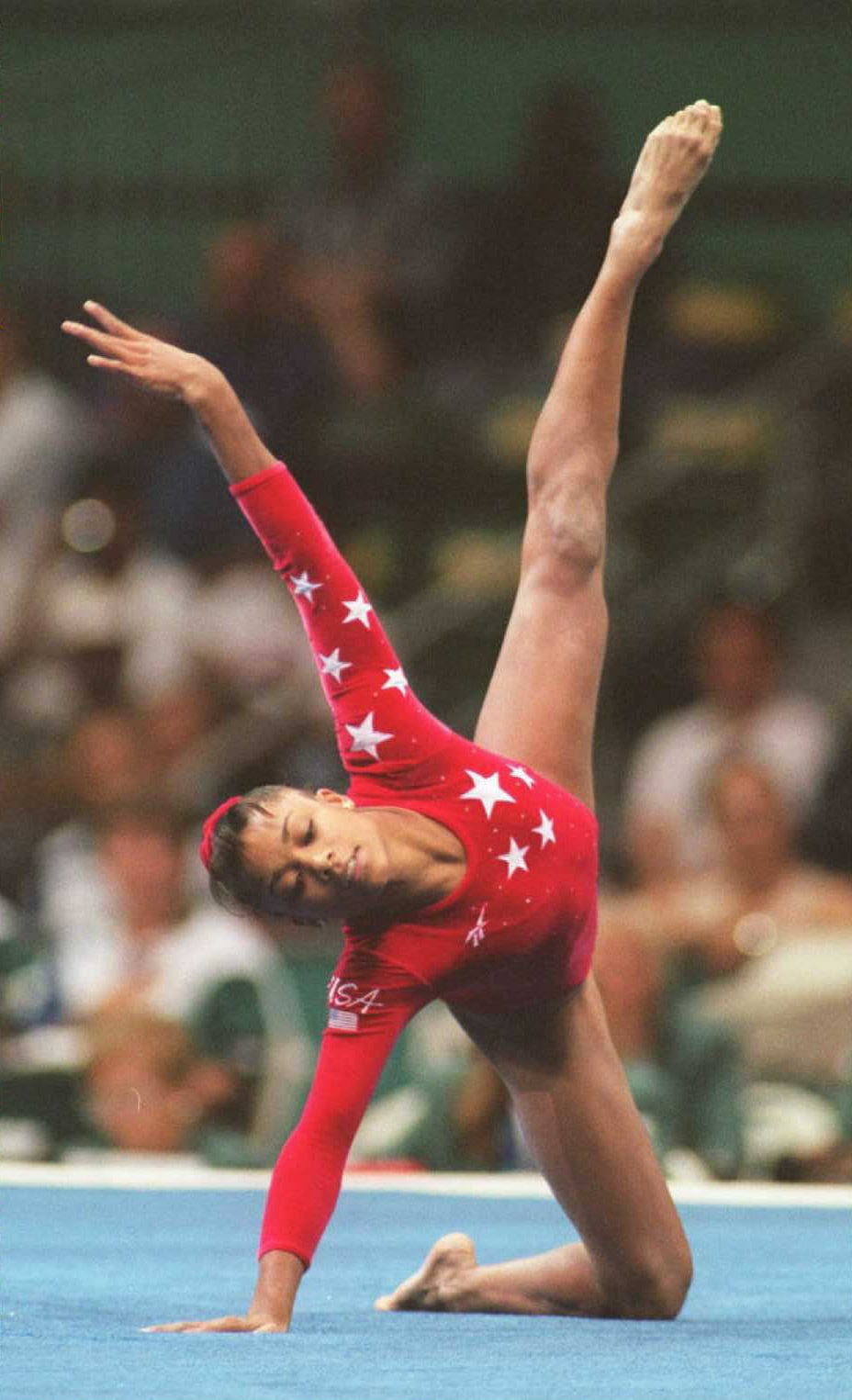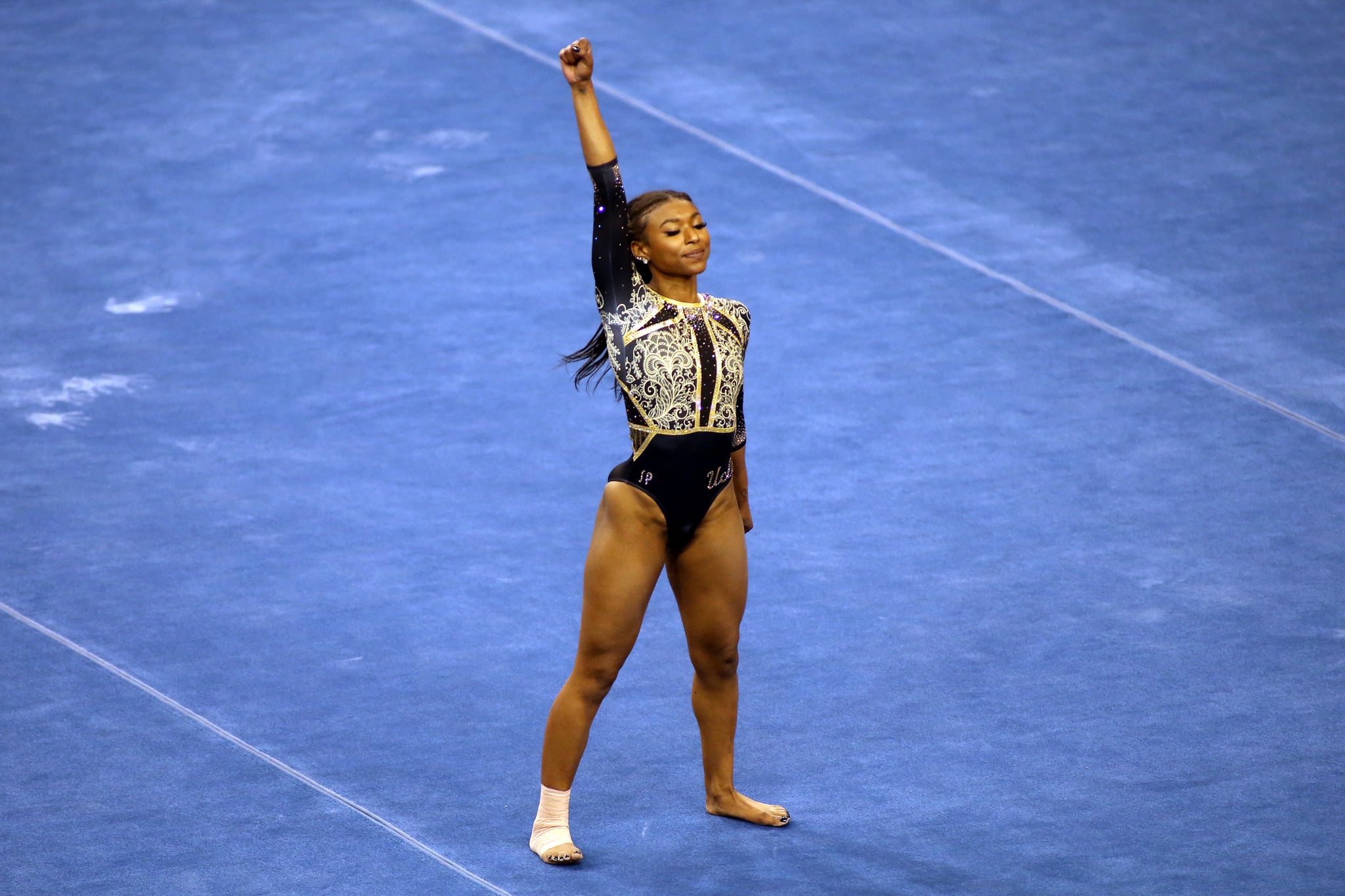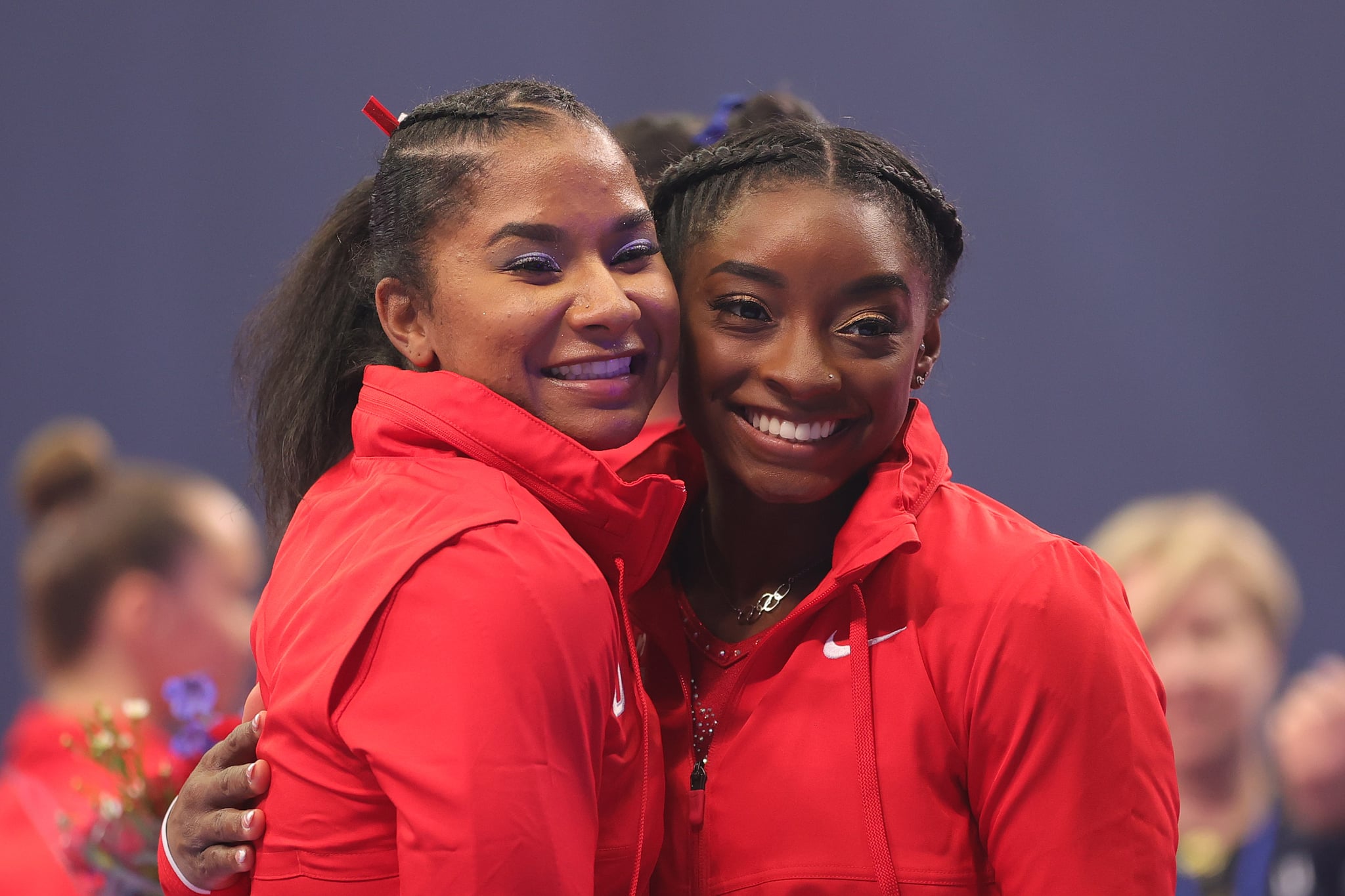
Image Source: Getty / Jamie Squire / Staff
Black women have always elevated the sport of gymnastics, and this past year is irrefutable proof of that. From viral floor routines from college gymnasts to jaw-dropping, never-before-seen skills executed by Simone Biles, Black gymnasts have finally been recognized for their invaluable contributions to the sport. But the spotlight that’s been shone on these athletes is long overdue, and while there are signs of progress in a sport where Black women’s efforts have historically been overshadowed or erased, there’s still a lot of work to be done. POPSUGAR spoke with gymnastics insiders about the hidden figures of the sport, the toxic culture that can hold back Black gymnasts, and the ways their undeniable presence now will help shape the sport’s future.
The Forgotten Legacy of Black Women in Gymnastics
Unlike Biles, whose name has become synonymous with the sport of gymnastics, many Americans had never even heard of Dianne Durham until her untimely death in February 2021. Durham became the first Black national all-around champion in 1983, beating out Mary Lou Retton, who would go on to win gold at the 1984 Olympics. She was also the first American gymnast and all-around champion to be trained by Bela and Marta Karolyi after their defection from Romania. Yet it was only at the time of her death that the world became aware of Durham’s historic firsts and accomplishments in the sport.
“I had the pleasure of knowing Dianne,” said Wayne Wright, a retired USA gymnastics coach who was on the floor at the 1996 Olympics when Team USA won gold, adding that he and Durham met at a competition in 1982. “There were very few Black gymnasts, and during that time, gymnastics as a sport was not as prevalent on TV as it is today,” Wright explained. “Unfortunately, her not making the US Olympic team in 1984 did not allow her the same notoriety of the other athletes during that time.” Wright believes Durham would have won gold that summer, but she was deemed ineligible to compete due to a technicality that was at best confusing and at worst riddled with racism — one that ended the Olympic dreams of the only Black athlete in a predominantly white sport.
Durham is not the only Black gymnast whose name has been erased from our gymnastics lexicon. Before Durham, there was rhythmic gymnast Wendy Hilliard, the first Black athlete to represent the US in international competition, and Luci Collins, who became the first Black gymnast to make the US Olympic team in 1980. That historic feat went largely unnoticed, because as Collins told ESPN, the media never identified her as Black or as a native of Inglewood, CA, at the time a predominantly Black neighborhood. Her Olympic career was ultimately sidelined by the United States’ decision to boycott the Moscow Olympics.

Image Source: Getty / AFP / StaffDominique Dawes competes in the individual floor event at the 1996 Olympics.
In 1992, teammates Dominique Dawes and Betty Okino completed that Olympic dream, becoming the first Black gymnasts to compete for Team USA, even earning a bronze in the team event. Dawes would go on to medal at three separate Olympics — the only American gymnast to do so — and in 1996, she became the first Black gymnast to win an individual Olympic medal (a bronze on floor). For some, Dawes’s Olympic run may feel like a distant memory, but she was an inspiration to many young gymnasts, including Hallie Mossett, a former powerhouse at UCLA, whose 2017 Beyoncé-inspired floor routine went viral, even capturing the attention of Queen Bey herself. “She was it,” said Mossett, who, as a young gymnast, intensely studied Dawes’s 1996 floor routine. “She was awesome, and growing up, I would choreograph dance floor routines and pretend I was her.”
“Black gymnasts have elevated the sport, making it more fun and exciting to watch by bringing in a higher skill level and electricity to gymnastics.” — Wayne Wright
These women paved the way for Black gymnasts like Tasha Schwikert, who competed with Dawes at the 2000 Olympics, then went on to win back-to-back national championships in 2001 and 2002, and Gabby Douglas, who became the first Black gymnast to win gold in the Olympic all-around in 2012. Then there’s Biles, whose impressive career includes seven national championships, six Olympic medals, and 25 World Championship medals. She’s widely viewed as the greatest of all time — an athlete who has not only pushed the limits of the sport but also become an advocate and mentor for those who will come after her.
On a purely competitive level, the impact is undeniable. “Black gymnasts are graceful, powerful, artistic athletes,” Wright told POPSUGAR. “I think Black gymnasts have elevated the sport, making it more fun and exciting to watch by bringing in a higher skill level and electricity to gymnastics.” But in order for Black gymnasts to rise to the highest levels of their sport, they need to be given every opportunity to succeed.
The Barriers That Keep Black Gymnasts From Thriving
College gymnastics is essentially a microcosm for the issues that still exist in the sport and in society as a whole. Social media has made stars of Black gymnasts like Nia Dennis, Margzetta Frazier, and Trinity Thomas, whose thrilling floor routines have gone viral. But while Black athletes have often been among the most recognizable faces in college gymnastics, only nine percent of Division I women gymnasts in 2020 were Black, up from six percent in 2008.
“Gymnastics is expensive, and I believe that access and affordability into competitive gymnastics programs are factors that contribute to the systemic erasure within the sport,” said Wright, who has coached the women’s gymnastics programs at Stanford and San Jose State University.
Even if Black gymnasts make it into a gym and onto the mat, they often encounter challenges that white gymnasts simply do not. “Black women are already overshadowed within society, and unfortunately, it’s no different in the sport of gymnastics. We live with the struggles of what it means to be Black and a woman, in a pool of non-Black people. It is a different journey that we experience,” Mossett said. “I had wonderful family support and great teammates, but the way I was spoken to in the gym, for example, was not an experience that my teammates ever had to encounter or deal with.”

Image Source: Getty / Katharine Lotze / StaffUCLA gymnast Nia Dennis raises a fist in solidarity during a Black Excellence-themed meet in February 2021.
Mossett is not alone. Last summer, following George Floyd’s murder, Black college gymnasts opened up about the microaggressions and blatantly racist treatment they had experienced from teammates, coaches, and administrators. Tia Kiaku, a former University of Alabama gymnast, tweeted that athletes and staff in the program had regularly used racial slurs and made racist jokes, later telling ESPN that the fallout that resulted from her reporting this behavior ultimately led to her exit.
The ESPN report included countless stories from Black gymnasts across the country, who recalled feeling isolated and excluded from their teams after engaging in protest, being held to Eurocentric beauty standards in scoring, and more. Their collective voices have helped ignite change within their sport and society, but it’s a heavy burden to carry as student athletes. Lasting change means addressing the systemic issues that allow these problems to persist, and often that starts at the top.
A Promising Future For Women’s Gymnastics
When asked from where she draws her strength, Mossett reflected on her family. “I have a great village of support with strong Black women as models to exemplify,” said Mossett, who was named after her great-grandmother Hallie. “I was proud to be Black — but when I did not see myself represented, there can be that feeling of wanting to fit in. My mom let me know that it was OK to be me and to stand confidently as a Black woman, even when there are others who may try to knock you down.”
And try to knock her down, they did. But despite the lack of representation Mossett witnessed as a young athlete, and the challenges she faced at higher levels of the sport — including not getting the recognition she deserved for her choreographic contributions at UCLA — she has continued to forge new paths in gymnastics. Today, she’s the assistant coach for Long Island University. “It’s been rewarding,” Mossett said. “It is a new program, and we have built it from the ground up.”
Recruiting more diverse coaches is one way gyms and college programs could make gymnastics more welcoming for Black athletes. “I didn’t see a lot of Black coaches in the sport, and throughout my career, I was never coached by a Black coach,” Mossett told POPSUGAR. “Representation and visibility are so important, and as a coach, my firsthand experiences in the sport have resonated with the few Black gymnasts on my team. I understand their journey, which allows us to have candid conversations about hair or the burden of representation, a conversation that others may not understand.”

Image Source: Getty / Carmen Mandato / StaffJordan Chiles and Simone Biles celebrate after being named to the US women’s Olympic gymnastics team.
Asked if the sport is changing, Mossett said she believes it is, though there’s more work to do. She pointed to the Black Lives Matter-themed meets that occurred at the college level this past season and to the growing number of Black gymnasts who are wearing natural hairstyles now, while she was pushed to straighten her hair. “These countless microaggressions shape how we portray ourselves, and I am happy to see Black girls just being themselves,” Mossett said. “I couldn’t be prouder that they are getting the recognition they rightfully deserve.”
“Representation matters. I had tears in my eyes when a little Black girl drew a picture of me.” — Hallie Mossett
Wright agreed that there has been progress. “I think we are moving in the right direction in terms of more opportunities and programs becoming available, such as Brown Girls Do Gymnastics, that work to support and advocate for Black gymnasts in the sport,” he said, adding that there are also more gyms opening up in previously under-resourced communities. However, “one major issue that still needs to be addressed is the lack of the opportunity for young Black girls to see collegiate and elite Black gymnasts compete — I hope we see this change in the future.”
Gymnastics seems to be entering a new era, one in which there are entire meets dedicated to Black Excellence and Biles — whether she’s competing or not — is lauded as the greatest of all time in a sport that has historically left Black women on the periphery. Mossett understands the magnitude of this moment and what it could mean to the next generation of would-be gymnasts.
“Representation matters. I had tears in my eyes when a little Black girl drew a picture of me,” she said, reflecting back on her college career. “It was a full-circle moment, as I did not have as many Black gymnasts to look up to.” Hopefully the events of the past year will have a long-term impact on the sport — one that will not only encourage more Black athletes to pursue gymnastics but also ensure that Black gymnasts are finally given the support and recognition that they deserve.
